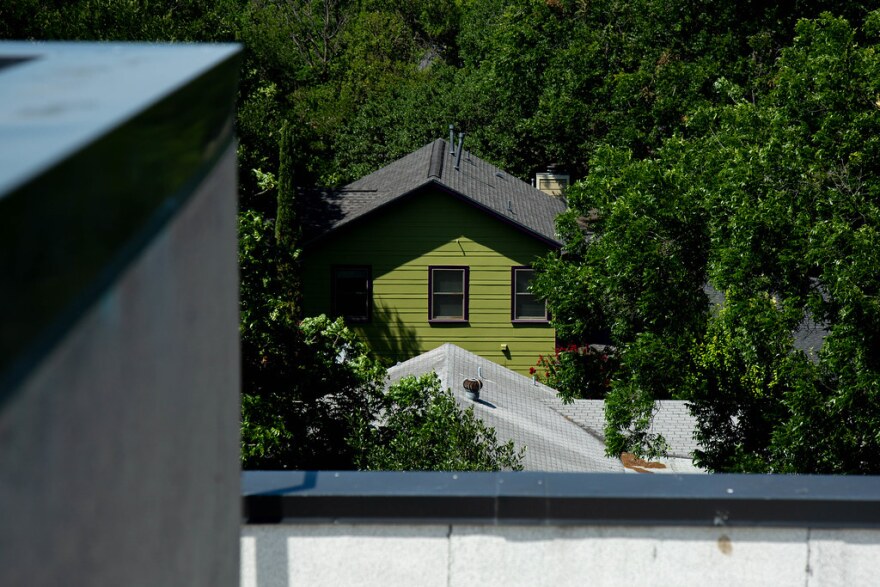The Austin City Council approved a plan that could loosen restrictions on building heights near residential properties.
The measure pushes the city to amend its land development code to allow taller buildings within at least 100 feet of a single-family home. That's a drastic reduction of the current citywide limit of 540 feet. It would also loosen rules on building structures in front and back yards, if the city manager recommends doing so.
Council passed the plan on an 8–2 vote Thursday after a back-and-forth on the dais.
District 4 Council Member Chito Vela put forth the proposal, arguing that the current restrictions — known in developer-speak as "compatibility requirements" — are stifling the city's ability to build affordable housing. Defending his plan ahead of the vote, Vela said he hoped the resolution would clarify the city's dense, complicated land development code.
"One of the recurring themes and problems in Austin with our land development code is its complexity," he said. "We need simple, straightforward rules, and not ... exception after exception ... which makes it very complicated and difficult to figure out exactly what is going on within the code."

Austin's development code allows builders to exceed height restrictions if they apply for a waiver. The city largely relies on density bonuses to build affordable housing. These are incentives that allow developers to build higher if they promise to provide affordable housing alongside market-rate units.
District 10 Council Member Alison Alter, who voted against the plan Thursday, argued Vela's plan "fundamentally undermines how density bonus programs are supposed to work." Vela's plan applies to any project, so, Alter argued, developers may not build affordable housing in projects if they're not incentivized.
"I have a hard time believing that after a developer has had so much given to them for free, that they would take part in what would be ... an extremely marginal additional gain in exchange for [affordable units]," Alter said.
Alter pushed forward density bonus programs that would've allowed taller buildings near homes in exchange for affordable housing late last year — one in residential areas and another along corridors. City staff told council that only six projects have applied for the residential program, while none have applied for the corridor program.
City staff is currently studying how to amend the city's land development code to allow for taller construction. The resolution passed Thursday would require them to come back to the City Council on or before December with an ordinance for council members to vote on.
Thursday's action is the latest in a spate of tweaks to the city's land development code. The city has spent decades trying to amend that code, which saw its last comprehensive overhaul during the Reagan administration. CodeNEXT, the yearslong plan to revamp the code, fizzled out last year after a lawsuit brought by homeowners.
Since then, City Council has taken a death-by-a-thousand-cuts approach, passing measures to slightly amend that code to allow for more density and expand housing amid an affordability crisis.
One of those measures was the Affordability Unlocked plan, which was expanded Thursday.
The plan, which City Council passed in 2019, incentivizes building denser affordable housing across the city. Homeowners have sued the city over the program, alleging it runs afoul of state laws regarding zoning changes.
A resolution that passed Thursday from Council Member Vanessa Fuentes expanded that program, allowing the city to focus on more neighborhoods and increasing minimum heights for projects.













